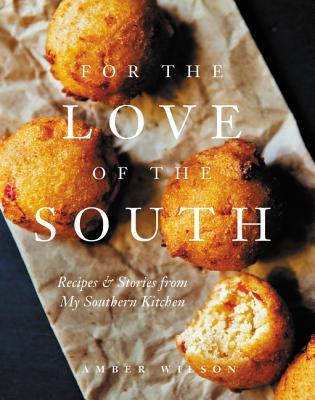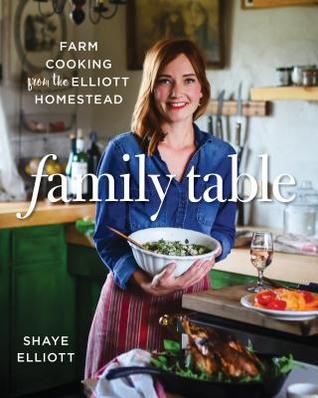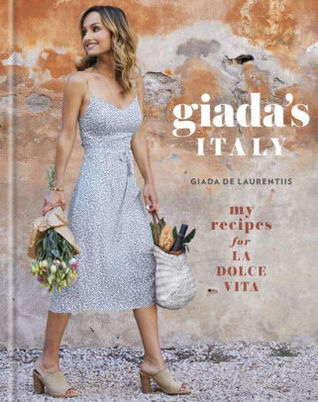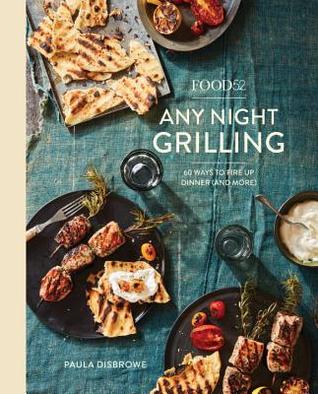Commonwealth by Ann Patchett (Books & Banter book club)
I've only read one other book by Ann Patchett (State of Wonder) and while I ended up loving it, it was a very slow start. So, that's what I was thinking would be the case with this one - it started off VERY slow and never really picked up the pace or had much excitement. But, the writing was good and there were lots of very funny parts thrown in. The book follows the children of two families in the aftermath of one mother leaving her family for the father of the other family. Beverly Keating meets Bert Cousins at her second child's christening party. Bert already has 3 children and #4 on the way when he meets Beverly and falls in love at first sight. The first chapter is the christening party and then after that the chapters jump around a lot in time - it would have been VERY helpful to have years added to each chapter, but then sometimes a character would remember back to something from childhood within a chapter set in a more current time. It could be confusing to keep everyone straight. I probably wouldn't have finished it if it wasn't for my book club, but what saved it for me is showing the strong bonds between the children throughout their lives. Despite the serious dysfunction in their combined family, the kids really did look out for each other in childhood and continued to in adulthood. I was also glad that you found out what happened to Cal - I was worried they would allude to his death and never explain what exactly happened like in some other books I've read recently (Our Hearts Will Burn Us Down and Idaho). Overall, it was somewhat interesting, but definitely not as good as I hoped it would be. I'll be interested to see what my book club thinks. I did find this other review on Goodreads pretty spot on: "I found it hard to give this book a rating. On the one hand, it was an excellent example of a literary novel. Great characters, good writing, lots of themes, emotionally engaging, the whole nine.
On the other hand, I just don't really understand why people want to read books like this. Why do you want to get inserted into some person's depressing life? No opera singers or magicians or scientists deep in the jungle, just some people living in Los Angeles and dealing with each other's fuckups. What's the point?"
A quote I found particularly funny:
"The flight from Los Angeles to Paris was twelve hours...By the time the plane landed at Charles de Gaulle she had aged twenty years. Prosecutors should insist the trials of murderers and drug lords be held in economy class on crowded transatlantic flights, where any suspect would confess to any crime in exchange for the promise of a soft bed in a dark, quiet room." (p. 275)

Option B: facing adversity, building resilience, and finding joy by Sheryl Sandberg
I love Sandberg's first book Lean In, so I was excited to read this one even though I knew it would be a very different book. I read a few other Goodreads reviews before writing my review and I honestly don't understand what people hated so much about this book. Is Sandberg wealthy? Does she have a lot of support - both at work and at home/family? Yes to both, but that doesn't mean she grieves less for her husband than other poorer women who don't have support and work or home. While Sandberg wrote this book after her husband died and her life became Option B in stead of Option A, I think a lot of what she talks about could apply to many other issues, not just the death of a spouse or even not just death. She intersperses her personal story of grief and starting to heal with research and other examples of people who responded to adversity with resilience and how they were able to do that. I personally felt like one of the biggest takeaways is to be open and honest - not hiding your pain (for whatever the issue is in your life). I liked that at her annual leadership day at Facebook she was real about dealing with her grief and struggling to get back into the groove at work, "I was sure that many were suffering in silence as we often do at work. I decided to open up in the hope that it might help others with hardships in their lives...In the weeks that followed, others at work started opening up as well. Together, we sent a bunch of elephants stampeding right out of our building." (p. 153) Overall, I think this is a very helpful book for anyone because even if you haven't lost someone close to you - pretty much everyone has dealt with adversity and could use more tips on becoming and staying resilient.
Some quotes I really liked:
"Then Adam suggested that I should also write down three things that I'd done well each day. At first, I was skeptical. I was barely functioning; what moments of success could I find?...For six months, almost every night before I went to bed, I made my list...It made me realize that for my entire life I'd gone to bed thinking about what I'd done wrong that day, how I'd messed up, what wasn't working. Just the act of reminding myself of anything that had gone well was a welcome shift...Making gratitude lists has helped me in the past, but this list served a different purpose. Adam and his colleague Jane Dutton found that counting our blessings doesn't boost our confidence or our effort, but counting our contributions can. Adam and Jane believe that this is because gratitude is passive: it makes us feel thankful for what we receive. Contributions are active: they build our confidence by reminding us that we can make a difference." (p. 68)
"Nietzsche famously described personal strength as 'what does not kill me makes me stronger.' Tedeschi and Calhoun have a slightly softer (one could say less Nietzschean) take: 'I am more vulnerable than I thought, but much stronger than I ever imagined.'" (p. 79)

The Tea Girl of Hummingbird Lane by Lisa See (Evening Edition book club)
Li-yan grows up in an Akha community in a remote part of China. Her daily life revolves around the farming of tea and it's seasons. When a stranger drives into the village looking for old-growth tea trees, Li-yan's life is forever changed. She is one of few educated children in her village, so she serves as a translator for this outsider and her community. When she falls in love with a boy considered a "bad match" by the traditions of their community and gets pregnant, she defies the tradition of killing the infant born out of wedlock and takes her daughter to an orphanage. The rest of her life is defined by that decision and Li-yan always hopes to one day be reunited with her daughter.
In California, Haley is adopted by a white couple and grows up in a very privileged life. But, she always wonders about her biological family and why she was left on the orphanage steps. Her parents are both scientists, so naturally Haley follows in their footsteps. When she gets interested in how climate change could affect tea growth in China she has the opportunity to go there and study how tea is grown and fermented.
The Akha people have a saying, "no coincidence, no story" and that plays out over and over in both Li-yan and Haley's lives. The Tea Girl of Hummingbird Lane is a beautiful story of family, tradition, and fate. Lisa See does a great job of telling both Li-yan and Haley's stories and brings them back together in a realistic, but unique way. A wonderful book that I'm so glad my book club voted in!
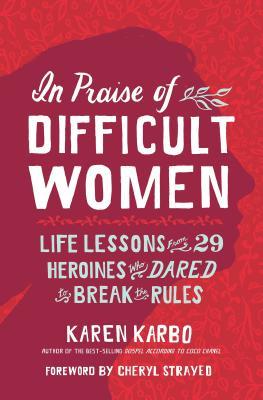
In Praise of Difficult Women: life lessons from 29 heroines who dared to break the rules by Karen Karbo
In Praise of Difficult Women is a collection of 29 short biographies of women that author Karen Karbo is or has been inspired by over the years. The women range from obvious historic figures like Amelia Earhart and Frida Kahlo to more current figures like Lena Dunham and Amy Poehler and pretty much everything in between. Karbo does a great job of telling each woman's story concisely, but also shows just how multi-faceted each woman's life is/was. While I wouldn't have personally chosen the same 29 women (and my OCD really wants her to find one more so it could be an even 30), Karbo does a great job of showing how each woman profiled is "difficult" in her own unique way. Karbo defines a "difficult woman" as "a person who believes her needs, passions, and goals are at least as important as those of everyone around her...a woman who doesn't believe the expectations of the culture in which she lives are more important than what she knows to be true about herself. She is a woman who accepts that sometimes the cost of being fully human is upsetting people. A difficult woman isn't a bitch, although on occasion she might be...A difficult woman is a woman who insists on inhabiting the full range of her humanity." (p.15) Really as women we should all strive to be more "difficult" by whatever limiting standards are around us and this book gives you some great role models to emulate.
Here are some quotes I liked:
From Shonda Rhimes, "'I find it offensive to motherhood to call being a mother a job. Being a mother isn't a job. It's who someone is. It's who I am.' She's also against the celebration of the mom as martyr, and goes on a fine rant about how perverse it is to celebrate mothers for their ability to suffer, to make themselves small and without needs for the sake of their family." (p. 111)
From Jane Goodall, "Difficult women aren't all swashbuckling extroverts who shoot off their mouths and shout down their adversaries. Sometimes they just sit quietly and refuse to pretend to be agreeable." (p. 186)

The Mountain Between Us by Charles Martin
After seeing previews of this movie I wanted to read the book first. The beginning is kind of slow and at first the audio recordings Ben does seem super weird - it becomes less weird later in the book, or you just get used to it. The basic premise is that 2 strangers rent a small plane hoping to get back home when all major air travel is grounded due to snow storms. Their pilot has a heart attack and they crash in the middle of wilderness. Ben is a surgeon, so that definitely helps the situation, and he's also an avid runner and mountain climber so he has some camping/survival gear with him (also very convenient). Ashley was trying to get home for her wedding and breaks her leg in the crash, so she is pretty much completely dependent on Ben to take care of her. They survive in the winter wilderness for 28 days before they are finally rescued. While the storyline is definitely interesting, the focus of the book is more on Ben and his personal/emotional struggles. I felt like the author did a great job with the ending - there is a twist that I didn't see coming. While it does wrap up the story a little too neatly, I could buy it. Was it a fantastic book? Not really, but it was a good story and now I'm definitely interested to see how the movie version plays out.

Fed, White, and Blue: finding America with my fork by Simon Majumdar
I knew who Simon Majumdar was from seeing him as an Iron Chef judge and on other Food Network shows, so I was interested to see what this book would be like. The premise is that when trying to decide if he wants to become a US citizen (after marrying his US citizen wife) he decides to find out more about America through food. He spends two years traveling all over the US eating all kinds of food and meeting all kinds of different people. He experiences everything from a competitive eating event, NASCAR, working on a farm, and fishing for salmon in Alaska. While I appreciate his efforts to really see the food of America, there were a lot of things he said that I didn't agree with and was surprised about his views of the industrial food industry - I would have thought someone who's entire career is based on food would understand the important of local and sustainable over industrial. He only spends 2 chapters on the "dark side" of American food - one on industrial beef/feedlots and one on food deserts when he works with a food bank. Overall, it was good, but not great. I don't know if I would read something else by him because I didn't love this one.
Some quotes I particularly did NOT like:
"Feedlots are not a particularly pleasant aspect of the U.S. beef industry, but they have become somewhat of a necessary evil, given the combination of delivering profit for the owners and consumer demand, which simply can't be met by a more ethical grass feeding system." (p. 128) [This is just straight up WRONG. The only reason industrial food "works" is because of massive government subsidies. If we paid less taxes we could all spend more money on higher quality food. And because of the industrial food industry we've trained consumers to only eat certain cuts and not practice more nose to tail eating that you would be more likely to do if you were closer to your food.]
"However, much as I admire craft food, I tend to have a more pragmatic approach to food production and often find such well-meaning speeches almost as irritating as they are inspiring. All too often they fail to recognize the fact that we not live in a world of over seven billion people. America does not exist in a vacuum and must play its part. Telling people we need to return to a mythical era of local and seasonal eating is Pollyanna-ish at best and down-right irresponsible at worst. It serves to disenfranchise those who don't have the time, opportunity, or income to do so, wherever they may be in the world." (p. 154) [See my previous comment with regard to government food subsidies. Eating local and seasonal is NOT Pollyanna - it's the way people around the world lived and ate for generations. You don't have to be a farmer either - you can support your local lunatic farmer.]
"I am not always the biggest fan of farmer's markets, as, quite frankly, I think there are far too many of them and not enough great producers to keep them supplied. The end result is that they often fill more spaces with stalls selling prepared meals and aging hippies making balloon animals for children than they do really good produce." (p. 232) [I don't know where he's been going to farmer's markets, but really?!?! Again, if there weren't so many government subsidies for industrial food maybe more smaller farms could make a go of things and make enough money to live. This may have been the worst few lines in the whole book and is VERY insulting to the many, many farmer's markets that do support local farmers and actually sell a lot of food.]
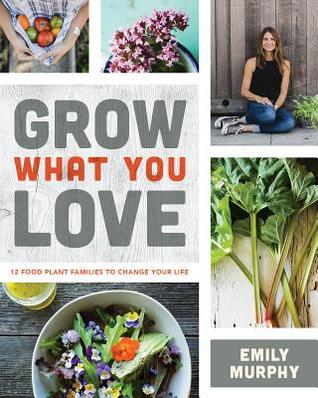
Grow What You Love by Emily Murphy
Grow What You Love is for the beginning gardener or someone looking to take their gardening up a notch. Emily Murphy gives a good overview of different types of gardening (containers, raised beds, etc.) and the basics of soil building and composting. Then she gets into 12 "plant families" and how to grow them, different varieties to try, and some recipes using the produce. She also talks about how to grow from seed, basics of tending your garden, and dealing with pests in an organic way. She also includes "workshops" with detailed instructions on various gardening projects - from building a raised bed from a trough to preserving herbs. Overall, a really solid gardening book. She definitely inspired me to try a few new things, namely I'm going to plan an area in my yard for a perennial herb garden for next year.
Orphan Island by Laurel Snyder
On Orphan Island 9 children live all alone - fishing, gardening, cooking, and caring for the younger children. The children seem to range in age from 4-12 and every year a new young orphan is brought by an unmanned boat and the oldest child leaves. Where do the orphans come from? Where do the older kids go? You never find out. I was really liking this book until about half way through. The story is told from Jinny's perspective. She becomes the new Elder when her best friend Deen leaves and her new Care Ess arrives. Jinny does have some likable qualities, but she really started to get on my nerves about half way through. When it's her turn to leave - she won't. All the other children are thrown by her decision and when things start to go wrong on the island is it Jinny's fault? It's obvious this is some kind of metaphor about growing up and leaving childhood behind, but it was a very odd story. I wanted more answers that you never get - who is Abigail? Why was this island started? Where do the young kids come from? Where do the older kids go? It's like the TV show Lost but for young kids. I just didn't get the point of this book and I can't imagine what a child would think of it - would they even get the point?! Overall, not as good as I was hoping at all.

